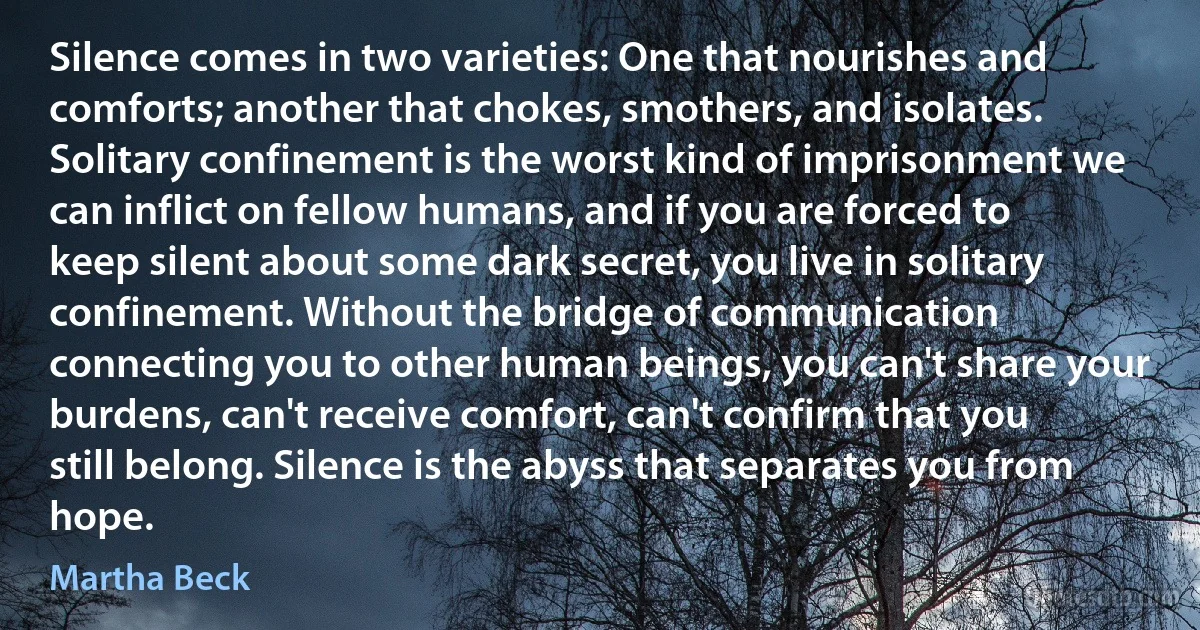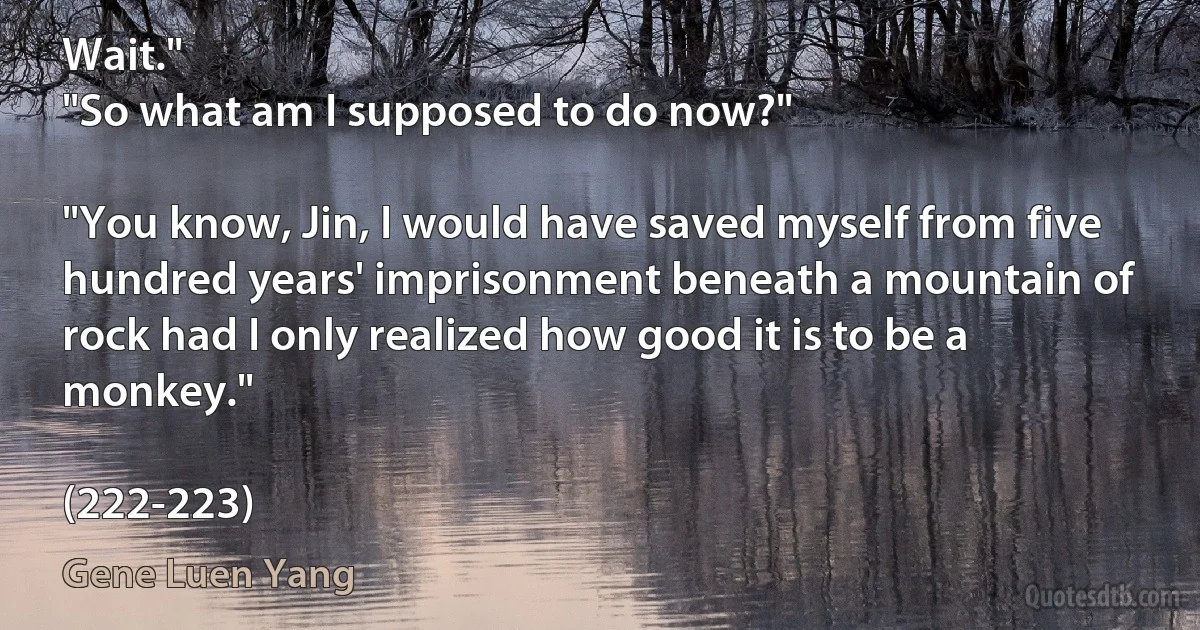Imprisonment Quotes - page 3
Throughout my life, I have publicly and privately denounced military interventions in domestic politics. In fact, I have been advocating for democracy for decades. Having suffered through four military coups in four decades in Turkey - and having been subjected by those military regimes to harassment and wrongful imprisonment - I would never want my fellow citizens to endure such an ordeal again. If somebody who appears to be a Hizmet sympathizer has been involved in an attempted coup, he betrays my ideals.

Fethullah Gulen
Whereas, Slavery, throughout its entire existence in the United States is none other than a most barbarous, unprovoked, and unjustifiable War of one portion of its citizens upon another portion; the only conditions of which are perpetual imprisonment, and hopeless servitude or absolute extermination; in utter disregard and violation of those eternal and self-evident truths set forth in our Declaration of Independence.

John Brown
We, the people, were denied of the right even to mention the word peace or peace partisans and everyone related to them had to suffer from imprisonment as if it were an unpardonable crime. But now, after the people have been liberated from slavery, and after July 14 ha dawned on us, this Republic and her sons have been liberated and have been marching on the path of freedom ever since.

Abd al-Karim Qasim
In Muslim majority states in northern Nigeria, speaking out against Islam is blasphemy and it is punishable by death or imprisonment. Criticizing Islam is dangerous not just because the state could prosecute, execute or jail the critic, but one could be killed by Islamic mobs. In fact the chances are that one is more likely to die in the hands of the later than the former.

Leo Igwe
When it comes to critical questions of religion, freedom of conscience, belief and speech is a paper tiger in Nigeria. In fact, religion is presented as inadmissible of criticism, of opposing views and opinions whether it is the status of women, of children, gay, or of non-believers. Religious positions are cast on stones. Views that are critical of religion easily get framed as blasphemy, which is a crime under Sharia law and is punishable by death or imprisonment.

Leo Igwe
On the imprisonment of Mahomed, Futteh Khan, assuming the reigns of government, and being formally crowned, was acknowledged King of Kashmeer in the year 902; and appointed Suffy and Runga Ray, the two officers who had lately made their escape, his ministers. About this time one Meer Shumsood-Deen, disciple of Shah Kasim Anwur, the son of Syud Mahomed Noorbukhsh arrived in Kashmeer from Irak. Futteh Khan made over to this holy personage all the confiscated lands which had lately fallen to the crown; and his disciples went forth destroying the temples of the idolaters, in which they met with the support of the government, so that no one dared to oppose them. In a short time many of the Kashmeeries, particularly those of the tribe of Chuk, became converts to the Noorbukhsh tenets. The persuasion of this sect was connected with that of the Sheeas; but many proselytes, who had not tasted of the cup of grace, after the death of Meer Shumsood-Deen, reverted to their idols...

Firishta
Adorno retains the concept of the system and even makes it, as target and object of critique, the very center of his own anti-systematic thinking. ... His most powerful philosophical and aesthetic interventions are all implacable monitory reminders-sometimes in well-nigh Weberian or Foucauldian tones-of our imprisonment within system, the forgetfulness or repression of which binds us all the more strongly to it.

Fredric Jameson
I have an ongoing operational preference, rather than an end goal. I was raised in a prison, as a war hostage. War is illogical, wasteful. Wars become less frequent the more incentives rational beings have to cooperate rather than to compete. A free and peaceful commonwealth embracing all rational entities of this and every other universe, Cosmic and Chaotic, mortal and immortal, will deter wars.
The primary requirement, however, is freedom: universal freedom. If there are other people out there, raised in imprisonment as I was, I have a duty to liberate them, for the same reason why I would have welcomed any outside liberator who would have attempted to free me. We were in the most pleasant prison imaginable. It was still unacceptable. The present condition of the universe is unacceptable. Anything I can do, large or small, along these lines, I will do. Other problems are secondary, and may resolve themselves once this primary problem is solved.

John C. Wright
The very highest duty of the States, when they entered into the Union under the Constitution, was to protect all persons within their boundaries in the enjoyment of these 'unalienable rights with which they were endowed by their Creator.' Sovereignty, for this purpose, rests alone with the States. It is no more the duty or within the power of the United States to punish for a conspiracy to falsely imprison or murder within a State, than it would be to punish for false imprisonment or murder itself.

Morrison Waite
The manipulation of public opinion both by governments and corporate media, and the manufacturing of consent undermine the essence of democracy, which is genuine participation. The harassment, imprisonment and killing of human rights defenders, including journalists, in many countries shocks the conscience. But also certain aspects of the war on terrorism and the abuse of anti-terrorist legislation have significantly eroded human rights and fundamental freedoms. In a democratic society it is crucial for citizens to know whether their governments are acting constitutionally, or are engaged in policies that violate international law and human rights. It is their civic duty to protest against government secrecy and covers-up, against disproportionate surveillance, acts of intimidation and harassment, arbitrary arrests and defamation of human rights defenders, including whistleblowers as unpatriotic or even traitors, when in fact they are necessary defenders of the rule of law.

Alfred de Zayas
Being desirous of allaying the dissensions of party strife now existing within our realm, I do hereby dissolve and abolish the Democratic and Republican parties, and also do hereby decree the disfranchisement and imprisonment, for not more than 10, nor less than five, years, to all persons leading to any violation of this our imperial decree.

Emperor Norton



